A Dignified Job Is At The Heart Of Climate Justice
For people in developing countries, a job that is safe, stable, inclusive, and rewarding is a ticket to a better life. But what happens when the effects of climate change worsen the challenges faced by those living in extreme poverty?
The world is slowly but steadily taking steps toward climate action. The transition of energy from fossil fuel-based power generation to a cleaner and electrified future led by renewables is already underway. But merely developing technological solutions to mitigate greenhouse gases (GHGs) and limit the further impacts of climate change is not enough. It has now become increasingly clear that we need more people-first solutions to adapt to the impacts that are already here.
May and June are large procurement months for the jobholders at Tamul Plates. In 2022, the jobholders faced an unprecedented challenge when heavy rainfalls in North East India destroyed more than 75% of the areca nut sheaths they collected and sold as raw materials to Tamul Plates. More than half the sheaths that were already purchased by the company were damaged in the warehouse itself. With very little raw materials left for the jobholders to work with, Tamul Plates had to procure areca nut sheaths from Southern India despite the higher logistical cost and lower profit margins. This situation had a considerable impact on the income and livelihoods of their jobholders.
In our jobholder surveys across our portfolio companies, we've found again and again that a dignified job is at the heart of climate justice as it provides social and economic stability to people in extreme poverty and gives them the agency to lead fuller lives. This is especially true for the women jobholders at Go DESi who were previously involved in only manual labor due to the lack of stable jobs in the Sira taluk of Karnataka. Today, these jobholders — and sole breadwinners for their families — have a dignified job that provides them with stable income, social and leadership skills, and a sense of community; thanks to Go DESi!
A dignified job also builds resilience in vulnerable communities to address the impacts of climate change. A continuous rise in global temperature leads to contradictory weather patterns like higher evapotranspiration and higher precipitation; a race that higher evapotranspiration always wins. This can significantly affect crop yields and reduce annual produce of farmers, leaving them high and dry. According to the IPCC’s Working Group II Climate Change 2022 report on Impacts, Adaptation and Vulnerability, India is one of the most vulnerable nations to droughts and heatwaves that will affect agricultural productivity and thereby, farmers’ incomes.
The social entrepreneurs at Bharat Krushi Seva are addressing this issue by making new age technology work for the betterment of Indian farmers in Maharashtra. They provide farmers with climate data that helps them mitigate the impacts of climate change and maintain a sustainable and profitable occupation. Their technological initiatives — satellite imagery, weather data, vegetation indices, crop monitoring systems, and analytical reports — pull in real-time insights on weather patterns, crop growth, and soil moisture that help farmers make better decisions and optimize their operations.
Plastic, the most carbon-intensive product right from its production to consumption, is also responsible for environmental degradation due to its mismanaged disposal in low-to-middle income countries. In 2019, according to Our World in Data, India accounted for 21.04% of the global mismanaged waste share, equivalent to 12.99 million tonnes per year. Green Worms is eradicating the issue of plastic pollution and poverty in the state of Kerala by creating dignified jobs for local women and leading the way to environmental justice. Through their mandate to provide safe working conditions, better wages, and dignity in the workplace to all their jobholders, Green Worms is able to drive systemic change in the waste management industry.
The impact of climate disasters and environmental degradation mainly affecting vulnerable communities infers that climate change and poverty are interlinked. It removes them from their home, forces them to migrate to cities, and even pick up low quality jobs to sustain themselves and their families. But the good news is — fighting one problem helps mitigate the other.
At Upaya Social Ventures, we believe that a dignified job is a human right, and that dignified work has a catalytic impact on families, communities, and economies. That’s why we invest in early-stage social enterprises that are creating dignified job opportunities for people living in extreme poverty. With climate change delivering blow after blow in the world’s most vulnerable places, our mandate to invest in dignified jobs for all just became more urgent.
This blog is co-authored by Madlin D’silva and Meg Massey.
ABOUT UPAYA SOCIAL VENTURES:
Upaya Social Ventures is a nonprofit organization building an inclusive economy by providing investment and support to early-stage businesses creating dignified jobs for people living in the most extreme poverty.
Upaya’s award-winning, impact-first model seeks out and supports oft-overlooked companies creating work that is safe, stable, inclusive, and rewarding—generating a transformative impact on families, communities, and economies.
Since its founding in 2011, Upaya’s portfolio companies have created over 30,000 dignified jobs across India. Please visit upayasv.org for more information.
MEDIA CONTACT:
Madlin Dsilva
mdsilva@upayasv.org



